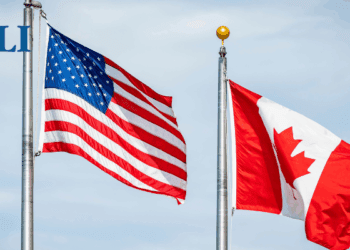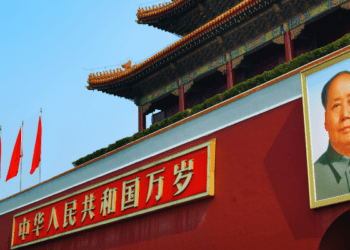On CBC’s 75th anniversary, MLI’s Jason Clemens evaluated the CBC within the broader context of government services and programs that are all facing potential budget cuts in the November 1, 2011 issue of the Financial Post. He used six tests developed in 1994 by the Chrétien Liberals to review all government spending. An excerpt below:
One of the critical factors of success in the Chrétien spending review was that no area of government was exempt. Given the deficit and the scarcity of taxpayer-provided resources, CBC must be part of the current federal government’s review. But the choice is not whether the federal government can or should support educational efforts about the country’s history, culture and identity. Rather, the question is whether there’s a better way to achieve those goals than spending more than $1.1-billion per year to maintain a national broadcaster. The evidence suggests, quite strongly, that a number of lower-cost options could achieve similar, if not better, results than the CBC.
The op-ed also appeared in the National Post, Regina’s Leader-Post, Yahoo! News Canada wrote about it, and Jason appeared on NewsTalk 1010’s The Live Drive with John Tory to discuss it. Listen to the interview below (begins at 16-minute mark).
[podcast]https://macdonaldlaurier.ca/podcasts/John-Tory-Podcast-November-1-Jason-Clemens-on-CBC.mp3[/podcast]
The Chopping Block: Reform the CBC
No one’s watching, except for hockey and jeopardy!
By Jason Clemens, Financial Post, November 1, 2011
he nation’s public broadcaster, the CBC, has attracted a lot of attention over the last few weeks. All the discussion is occurring within an Ottawa environment where at least $4-billion (probably more now, given the slowing economy) has to be found over the next three years for the government to balance its budget as planned. Unfortunately, the discourse about the CBC tends to be overly emotive and ideological rather than practical.
To objectively evaluate the CBC within the broader context of government services and programs that are all facing potential budget cuts (transfers to individuals and the provinces have been exempted), one should compare the broadcaster’s goals against its performance.
But within what framework? In 1994, the Chrétien Liberals introduced a year-long process of review for all government spending, which led to the historic 1995 budget. The spending review was based on six tests:
1) Serve the public interest.
2) Necessity of government involvement.
3) Appropriate role for the federal (or provincial) government.
4) Scope for public-private partnerships.
5) Scope for increased efficiency.
6) Affordability.
The CBC’s stated mandate is to “inform, enlighten and entertain” viewers and listeners about our nation, its culture and identity. Although debatable, there is a cogent, reasonable argument to be made that a nation’s government should undertake action to promote its values, culture and history. Such an argument would satisfy the first three tests listed above.
The satisfaction of the first three tests, however, doesn’t logically lead to the need for a state broadcaster with all its fixed costs and bricks and mortar. The CBC received $1.16-billion in 2010 from the federal government, representing about two-thirds of its revenues. The practical question is whether alternatives to the status quo could achieve better results in terms of educating and enlightening Canadians about their culture, history and national identity at the same or even lower cost to taxpayers.
Tests four through six pose a serious, even existential challenge for the CBC in its current form. First, there are now a number of private companies that the CBC directly competes with, including large national organizations, such as CTV and Global, as well as many niche players. This suggests both private-sector alternatives (test #4) and room for efficiency gains (test #5) from changing the status quo at the CBC.
In addition to private-sector competitors, there is also the issue of existing alternative mechanisms to achieve the CBC’s stated goal. One existing option, for instance, is the Canada Media Fund (CMF), a public-private partnership. The CMF already has processes in place to fund worthy (admittedly a subjective process) programs, including, by the way, programs broadcast by the CBC. Here is a clear alternative to the CBC model: Private companies apply to the CMF for funding to develop, produce, market and air programs. Such an approach would insulate the government from almost all the fixed costs associated with maintaining a national broadcaster.
Another serious problem for the CBC in terms of value to taxpayers is viewership (test #6). Simply put, it’s hard to achieve CBC’s mandate if no one is watching or listening. Examining the top 30 shows in any given week as compiled by the BBM is quite informative about this problem. Over the last year (period ending Oct. 16), the CBC had 163 programs in the top 30 (total of 1,560).
However, 57 of the 163 programs were hockey. Hockey would absolutely continue without the CBC. Sixteen of the remaining programs were Jeopardy!, 11 were Wheel of Fortune, and 14 were the Movie of the Week, which is more often than not an American movie. It’s rather hard to explain how these programs advance or even resemble the stated mandate of the CBC.
That leaves 65 shows (4.2%) in the top 30 for the entire year. And the remaining shows are dominated by titles like Dragon’s Den and the Rick Mercer Report. Canadians just don’t seem to watch the CBC and when they do, it’s not entirely clear that what they’re watching is about their culture and heritage.
Another problem for the CBC is its cost. Currently, the CBC costs taxpayers about $69 per year. To put this into perspective, a cable customer in Ontario purchasing the basic package from one of the large providers gets more than 50 regular stations, plus 45 or so HD stations, plus over 75 radio stations for $36 per month. The magnitude of the value difference, particularly when one considers that most Canadians do not watch the CBC, outside of hockey, is striking.
One of the critical factors of success in the Chrétien spending review was that no area of government was exempt. Given the deficit and the scarcity of taxpayer-provided resources, CBC must be part of the current federal government’s review. But the choice is not whether the federal government can or should support educational efforts about the country’s history, culture and identity. Rather, the question is whether there’s a better way to achieve those goals than spending more than $1.1-billion per year to maintain a national broadcaster. The evidence suggests, quite strongly, that a number of lower-cost options could achieve similar, if not better, results than the CBC.
Financial Post
Jason Clemens is the director of research at the Macdonald-Laurier Institute and co-author of the award-winning book, The Canadian Century (2010).




